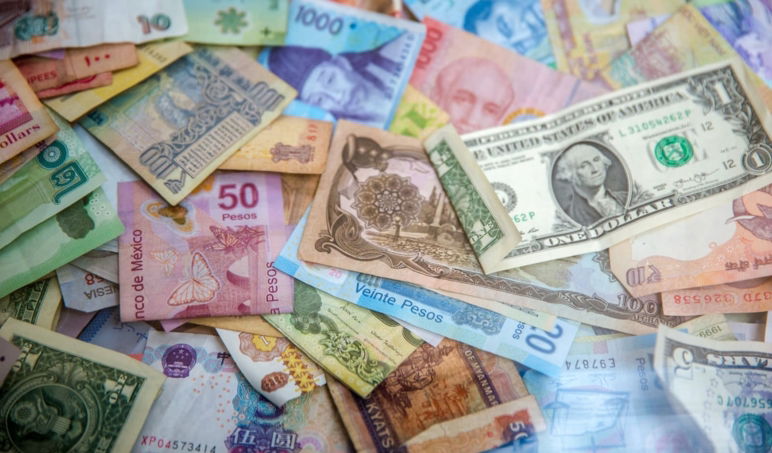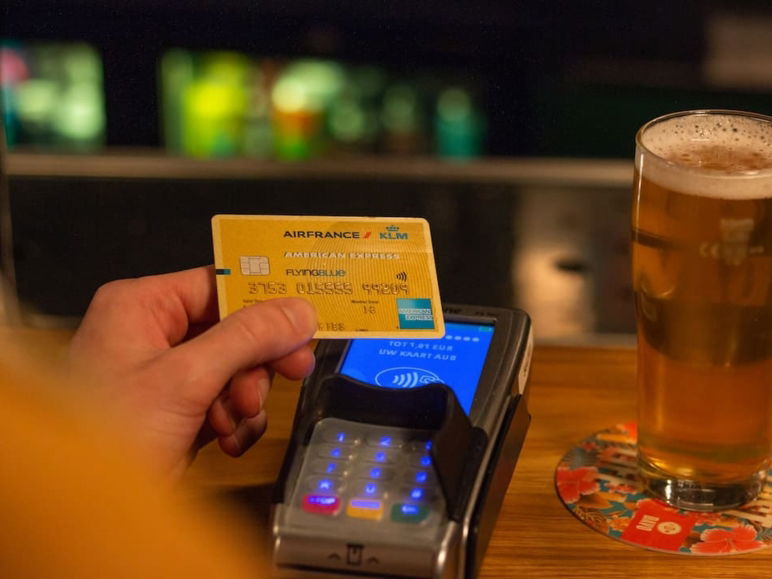
When traveling overseas, there are some considerations to keep in mind when it comes to how much money to take, and in what form.
ATMs are much more common than they used to be, but there are still many parts of the world where you won't find one on every street corner - and even then, only in large cities. You might also find that banks are open only for very limited hours, and closed for local public holidays and early closing days you might not know anything about because you are not a local.
Here are some tips on how to take your money and manage it while abroad.
1. Cash

Have cash in your home currency for the airport, and enough foreign currency in cash with you to cover expenses once you arrive - such as taxis, tips, a meal and so on. Have enough with you for at least one day's worth of expenses so you can get situated in your new location and find a bank, ATM and so on.
Needless to say, always carry your cash in a safe place, but one accessible enough for you to take it out to spend without drawing unnecessary attention.
2. Foreign Exchange
Each time you exchange money, you will be required to pay a fee. So on one hand, you might be nervous about carrying a lot of cash, but on the other, you want to get a good rate and make the most of the fee.
Order the cash from your bank or a Bureau de Change, at least a couple of weeks before you go. Check the exchange rate for buying and selling. You probably won't have any money left when you come back, but it is good to check if you do need to change any back again.
Once you get to your destination, look for a Bureau de Change near where you are staying. They can be found at airports, of course, but you won't usually get a good rate there.
3. Credit and Debit Cards

Credit cards such as MasterCard and Visa are accepted all over the world. If it is a debit card attached to your bank account, this can help keep you within your vacation budget. On the other hand, there can be substantial fees involved in using a foreign ATM which can bite into your budget. These include foreign exchange fees as well.
If you are going to take money out, therefore, make sure it is enough to cover what you need, rather than $20 here or there.
Use a credit card or debit card to make purchases directly at shops, restaurants and so on. Keep your cash in reserve for small purchases, market stalls and so on.
Note that some US cards are not accepted overseas, because they are not part of the Cirrus or PLUS network. In this case, consider getting a pre-paid MasterCard. Make sure the amount you put on it will cover your needs. You will have to pay a fee.
Also, note that some US cards won't work overseas because they use chips rather than swiping the card. You might not be able to pay unless you can find staff who would be able to enter the number manually. Otherwise, you will need cash.
4. Travelers' checks
While the use of travelers' checks has diminished in recent years, there are still individuals who find them a reliable option for managing finances during travel.
Despite being less common, travelers' checks offer a sense of security as they can be easily replaced in the event of loss or theft. It's important to note that fees are often associated with travelers' checks, and their acceptance may vary depending on the destination.
While alternative payment methods like credit and debit cards have become more prevalent, the durability and replaceability of travelers' checks remain appealing to some cautious travelers.
Always check with local establishments and financial institutions to confirm acceptance and fee policies before relying on travelers' checks for your financial transactions.
5. Wire transfer
In situations requiring immediate financial assistance, wire transfers through services like Western Union or MoneyGram provide a reliable lifeline.
In emergencies, your family can quickly send funds to support you wherever you are. It's crucial to be aware that these services typically impose fees, which can either be a percentage of the transferred amount or a flat fee.
For instance, Western Union may charge a flat fee of $6 for the service. While the convenience of receiving funds swiftly is invaluable in emergencies, travelers should consider the associated fees and choose this option judiciously.
Familiarize yourself with the terms and conditions of the chosen wire transfer service, and share the necessary details with your family to ensure a seamless and secure financial lifeline when needed.
Tags:
Travel, Vacation

Punta Cana Trip
Discover the enchanting beauty of the Dominican Republic with our exceptional tours and transfers.
More posts
LEAVE A COMMENT
TAGS







